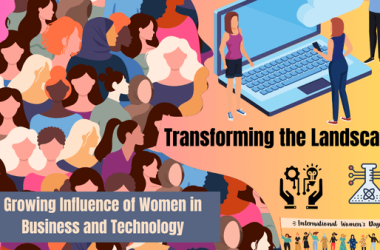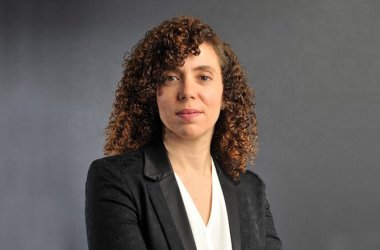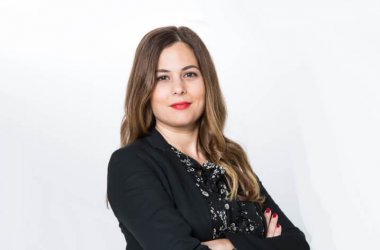March is the month for women. Anita Joseph, Editor, caught up with Noor Taher, Managing Editor, Amazon Alexa MENA, to find out why there should be more women stepping into technology roles and how an organisational culture of diversity, equity and inclusion increases opportunities for career growth and access to leadership roles for women.

Tell us about your role at Amazon and why you decided to pursue a career in the technology sector?
As the leader driving the development of Alexa’s personality for Arab and Khaleeji users, I am deeply committed to delivering experiences that resonate with Amazon’s Saudi customers. Our team comprises of exceptional women at the forefront of AI and technology, staying true to the culture and people that Alexa interacts with. At the heart of our mission to fuse culture with technology lies Amazon’s commitment to delivering a diverse range of skills and experiences that resonate with our users. We strive to keep Alexa attuned to the vibrant gaming culture, poetry recitation traditions, and the myriad of exciting initiatives, projects, and events that constantly emerge across the MENA region. For our Saudi users, this means creating skills that welcome them in their local dialects and even reciting poetry on demand.
I was drawn to technology because I saw the tangible impact that technology was having on homes, classrooms, and the global economy and knew that I wanted to contribute to its ongoing evolution. From an early age, I have been fascinated by both the macro and micro effects of technology on our lives, from the slow integration of phones into our daily routines to the rapid ascent of ecommerce and social media platforms. I have always been driven to be a part of this force of change, and to use technology to make a positive impact on people’s lives.
The MENA region, where I call home, is currently experiencing a period of significant transformation across a range of social, behavioural, and generational fronts. I firmly believe that innovation is key to the region’s progress, and I am grateful to be part of a team that is shaping the future through products like Alexa.
Why do you think there should be more women in STEM?
Gender diversity in STEM fields is important for fostering innovation and creativity. At Amazon we believe that a diverse workforce brings different perspectives and experiences to the table, which can lead to more effective and innovative solutions for our customers. However, women have historically been underrepresented in STEM fields, leading to a gender pay gap across the industry and a lack of female role models for girls and young women. Increasing the number of women in STEM can help address these issues and create a more equitable society.
STEM fields offer high-paying and rewarding careers, and women have the skills and abilities to excel in these fields. By actively encouraging and supporting more women to pursue STEM fields, we can break down barriers and promote gender equality in these sectors. Moreover, the development of AI technology requires diverse perspectives and experiences. By increasing the number of women in STEM fields, we can create a more diverse workforce that can bring different ideas and perspectives to the development of AI technologies. This will enable us to design AI technologies that can effectively address important social and environmental challenges.
The MENA region has made significant strides in gender diversity in STEM. According to PwC’s MENA Women in Work Survey 2022, between 34% (Egypt, Saudi Arabia) and 56% (Oman) of STEM graduates in the region are women, a much higher proportion than in the US (22%) or Europe (34%). In Saudi Arabia, women’s participation rate in the IT sector rose from 11 percent in 2017 to 24 percent in 2021, which is higher than Silicon Valley by 8 percent. A recent UNESCO study indicated that 57 percent of the Middle East’s graduates in STEM subjects are women. These figures highlight the region’s commitment to diversity and equality in the workplace.
How can women themselves help to balance the gender scale and bring more women into STEM?
To empower more women in science, we need to make science education more accessible, beginning with primary school level. This can be achieved by offering public engagement programs and hosting research open days that welcome young girls. Additionally, an extensive course/mentorship program can be implemented to support and guide women interested in pursuing science careers.
Women in STEM can volunteer with organisations that offer STEM activities for girls, such as Girls Who Code or Black Girls Code, and introduce similar programs to regional markets.
Encouraging women to pursue their passions and showcasing their achievements in STEM is crucial for empowering them to contribute to the power that technology wields in our region. By promoting equal opportunities and highlighting the strengths of women in STEM, we can challenge the biases and stereotypes that exist in the field. Through these efforts, we can create a more inclusive and equitable STEM community that encourages everyone to pursue their passions and reach their full potential.
How does an organisational culture of diversity, equity and inclusion increase opportunities for career growth and access to leadership roles for women?
Organisational culture plays a critical role in creating a workplace that is inclusive and equitable for all employees, particularly women. By cultivating a culture of diversity, equity, and inclusion (DEI), organisations can create an environment where women feel valued, supported, and empowered to succeed. When organisations prioritise DEI, they are more likely to attract and retain top female talent, as well as create opportunities for career growth and access to leadership roles.
I have seen this first hand at Amazon where a DEI-focused culture is helping women advance in their careers by providing them with equal access to training, mentorship, and leadership development programs. This creates a level playing field for all employees to compete for leadership roles, based on their skills and experience, rather than their gender. Additionally, when women are represented at all levels of an organisation, it sends a powerful message to women that their contributions are valued and recognised, and that they have an equal opportunity to succeed. Ultimately, a culture of diversity, equity, and inclusion is not only good for women, it is good for business. By embracing DEI, organisations can foster a culture of innovation and creativity that drives success in today’s rapidly changing global marketplace.
What is your dream/message/advice for other women in the MENA region this International Women’s Day?
To all the incredible women of MENA, on this International Women’s Day, we reflect on the progress we have made and the work that still lies ahead. We stand on the shoulders of our ancestors who fought for our rights and paved the way for us to be where we are today. I am proud to work alongside so many women at Amazon who continue to inspire me and support others on their journey. Let us continue to break down barriers and empower more women to pursue their passions in STEM fields, shaping the future of technology and creating a more inclusive and equitable society. I dream of a world where every day is International Women’s Day.





